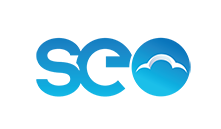

Founder & Director
As a finalist in the Australian Design Award and in various publications my SEO consultancy company has provided competitive prices with measured results. I personally work one on one with my clients to optimise results giving key ingredients to help get your website to the top of Google. My brand experience includes Monash university, Silvertop Taxi, Mercedes Benz and True Value Solar which I was the digital marketing manager. I am accessible, reliable and genuinely care for your business, if your business needs a kickstart with some nice graphic design, web design or SEO, get in touch today.
The Benefits of Internal Linking for SEO
Search engine optimization (SEO) is a crucial aspect of any digital marketing strategy. With millions of websites vying for attention, it is essential to ensure your website is optimized to rank higher in search engine results pages (SERPs).
What is Internal Linking?
Internal linking is the process of linking one page on a website to another page on the same website. In simpler terms, it is linking a webpage to other pages on the same website. These links can be in the form of hyperlinks, buttons, images, or any other clickable element on the webpage.


Internal linking is important for both users and search engines. For users, internal linking helps to navigate to other relevant pages on the website. For search engines, internal links help to understand the structure and hierarchy of the website, which can influence the ranking of the website in SERPs.
The Benefits of Internal Linking for SEO
There are several benefits of internal linking for SEO, including:
1. Improved Website Navigation
Internal linking helps to improve website navigation, making it easier for users to find relevant information. By linking related pages, users can easily navigate to other pages on the website, leading to a better user experience.
2. Increased Page Authority
Internal linking can help to increase the page authority of a webpage. Page authority is a metric that indicates the strength of a webpage and its ability to rank higher in SERPs. By linking to other relevant pages on the website, a webpage can receive more page authority, leading to higher rankings in SERPs.
3. Better Crawlability
Search engines use crawlers to navigate and index webpages on the internet. Internal linking helps search engine crawlers to discover and navigate to other pages on the website easily. By ensuring all pages on the website are linked to each other, search engines can crawl and index the website more efficiently, leading to better rankings in SERPs.
4. Improved Keyword Rankings
Internal linking can help to improve the keyword rankings of a website. By linking relevant pages together, search engines can better understand the context and relevance of the website’s content. This can lead to better rankings for the website’s targeted keywords.
5. Increased Time on Site
Internal linking can help to increase the time users spend on a website. By linking related pages together, users can navigate to other pages on the website, leading to a longer session duration. Increased time on site can improve the user experience and increase the chances of conversions.


Best Practices for Internal Linking
When it comes to internal linking, there are some best practices to keep in mind:
1. Use Descriptive Anchor Text
Anchor text is the visible, clickable text of a hyperlink. When linking to other pages on the website, use descriptive anchor text that accurately describes the content of the linked page.
2. Link to Relevant Pages
When linking to other pages on the website, ensure the linked pages are relevant to the content of the current page. This can help to improve the user experience and increase the relevance of the website’s content for search engines.





